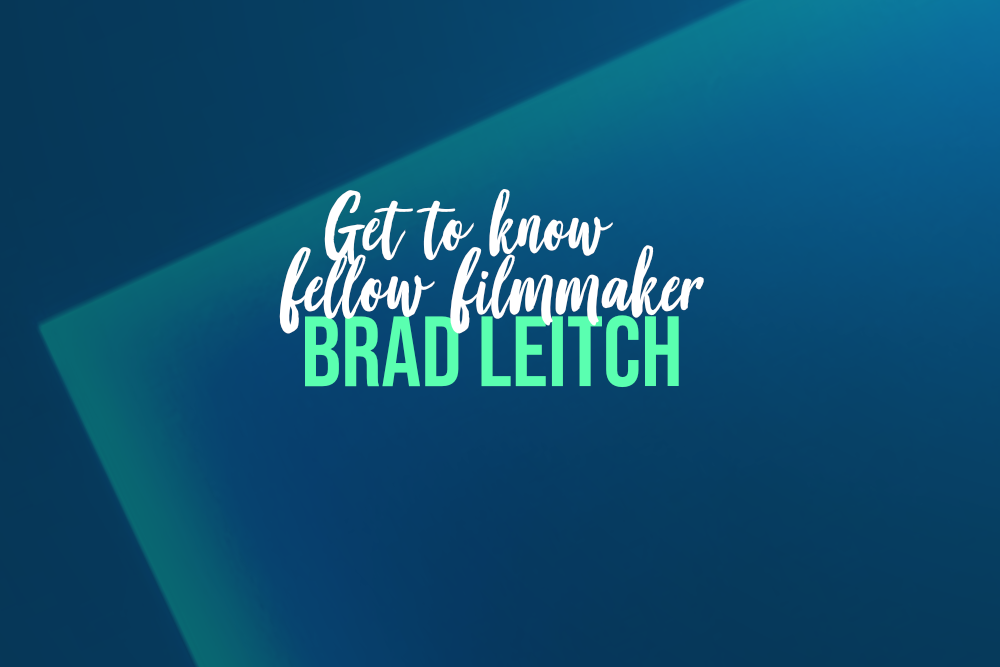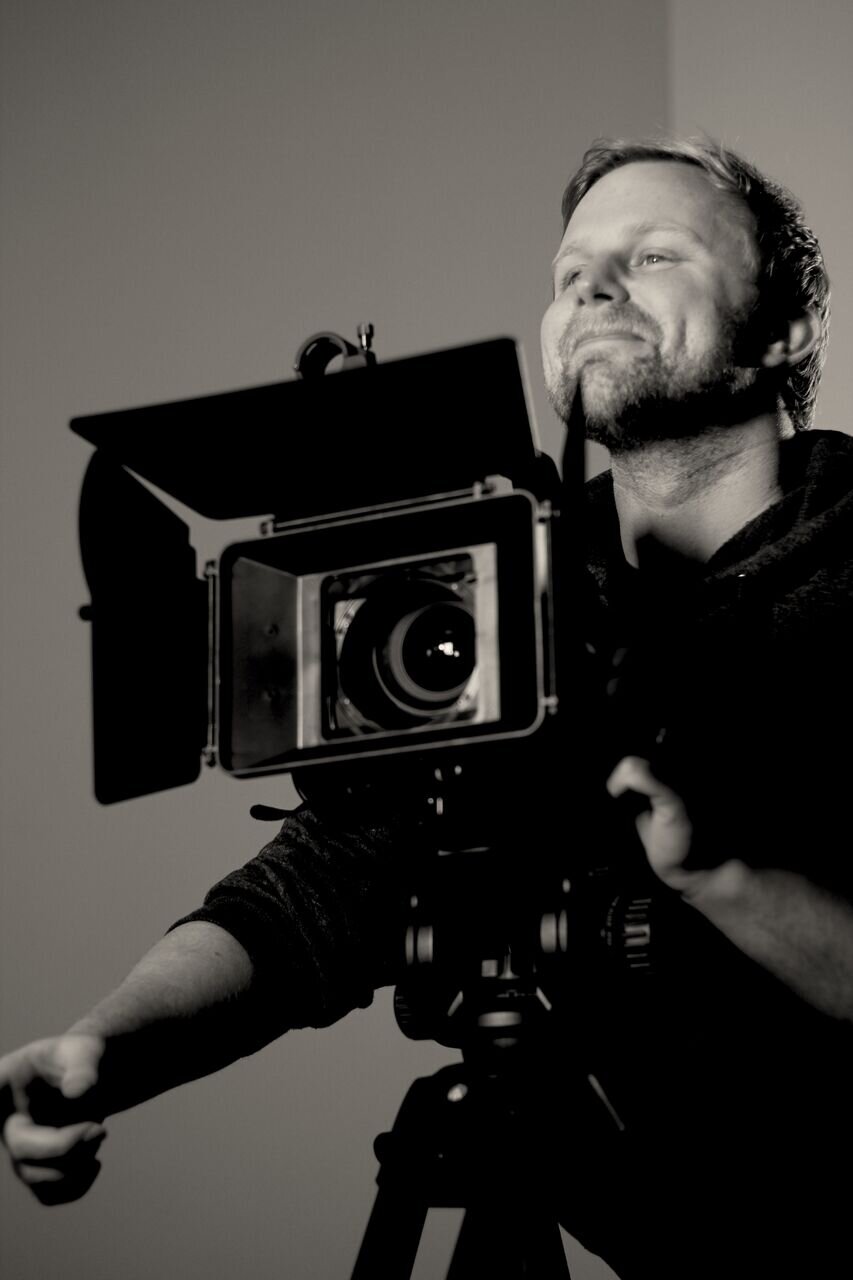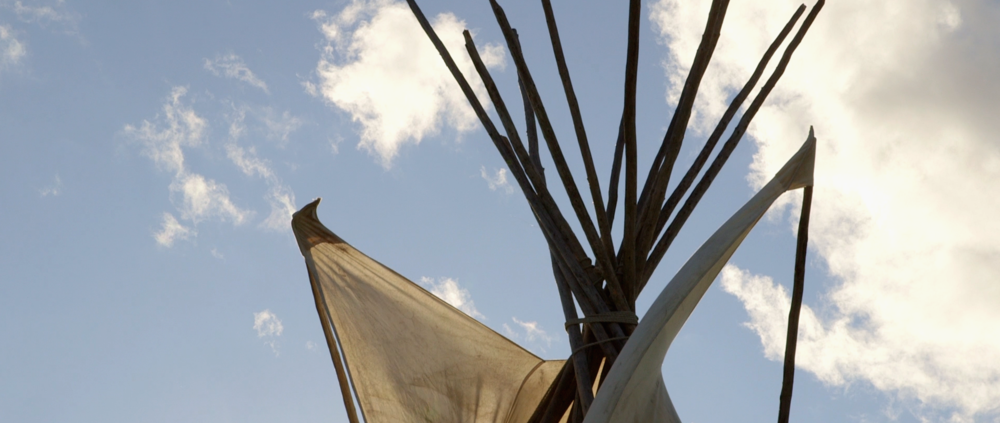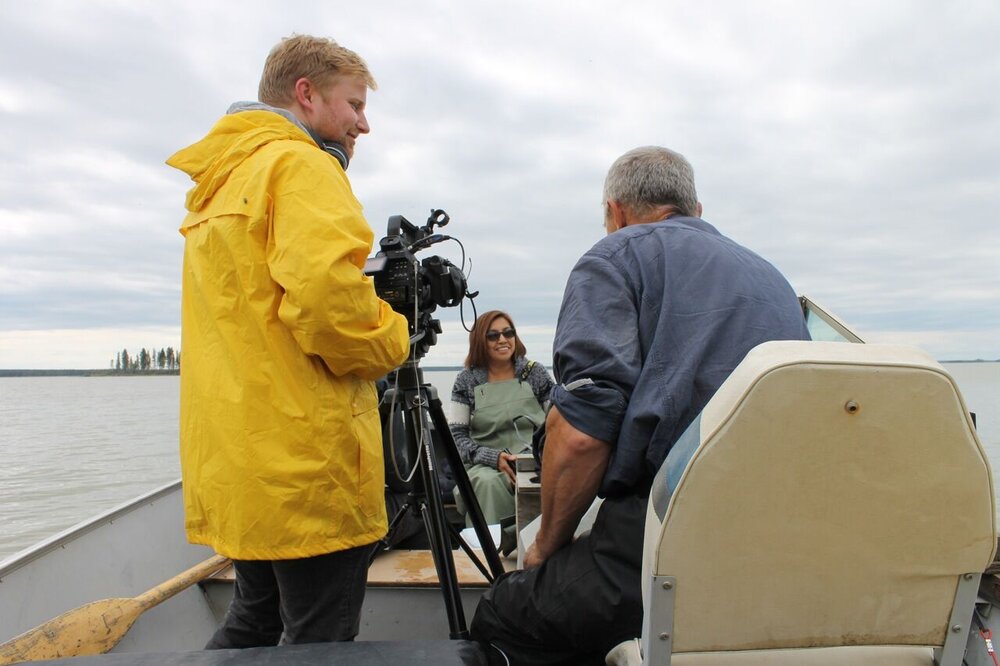
In 2010, award-winning documentary filmmaker Brad Leitch was conducting volunteer peace work for a human rights organization in Northern Iraq. It’s a trip that catapults his decision to amplify social issues and causes through filmmaking.

Filmmaker, Brad Leitch
Given his background and skills in video production, Leitch was part of a storytelling project at an Internally Displaced Persons camp. Yet due to increasing levels of violence—in what would later become ISIS controlled territory—a decision to cease filming was made.
“There is power in the hands of a storyteller with a camera and how you use it has real consequences for real people,” says Leitch. “Our decision to not go forward with that story, in that moment, was because of deep concern for the community and the participants involved.
But for the Vancouver filmmaker, there was more to uncover—another story to tell. On the day before being leaving Iraq, Leitch met a local who survived the 1988 Halabujah Chemical Bombings, who also ran a museum commemorating lost those affected by the political crisis and tragedy. Capturing roughly one minute of interview content, the man equipped Leitch with a DVD of footage visually detailing the atrocious aftermath of the bombings; he asked Leitch to use the footage to create something for sharing with the people back in Canada.
“I felt a responsibility and obligation to respond to that request, to share this with others and to honor the story of the man who shared his story with me,” says Leitch. “Eventually I finished the video, and put this no-budget, grainy film on YouTube thinking nothing would really happen with it.”
But the project didn’t go unnoticed by the public, garnering the attention of a museum curator in New York. The finished film is now featured in a permanent exhibit on mass atrocities at the Canadian Museum for Human Right where visitors can heed and learn from an important moment in history.
To learn more abut Leitch’s commitment to his community and filmmaking prowess, we sat down to chat more. Read on below.
Marmoset: We saw you studied Peace and Conflict Transformation, how do you think this helps shape or guide your contents purpose?
Leitch: At the same time I was working on the Halabjah chemical bombings video I was working for my B.A. in Peace and Conflict Transformation. I had a class at the time called Trauma and Recovery and the university professor allowed me to create this video as part of an assignment. It was the encouragement I needed to process the material and then to create something with it. Peace and Conflict Transformation at its core is very creative work. The degree forcused on everything from interpersonal conflict to large scale social change movements. Whether a conflict or dispute is between two next-door neighbors, or warring nation states, there is no simple method or easy formula to building peace and transforming complex conflict at a structural, cultural, relational and personal level.
During my studies, one of largest Indigenous led social movements in recent years was springing up across Canada called Idle No More. I quickly found myself in this movement, educating myself in teach-ins and walking alongside others in marches and sit-ins in in downtown Winnipeg. Eventually I would be invited to take my camera into some of this work, working alongside First Nations across Canada.
>
““I’m always endlessly and marvelously surprised, by the people, by the issues, by my own lack of knowledge and awareness, by the politics and complexity and tragedy and beauty of the human experience. It’s why I love what I do.””
M: How does this type of education and background influence your work today?
Leitch: My degree in Conflict Transformation affects so much of my work: from how I deal with the practical and logistical challenges of film production, down to how I shape and edit the very content and purpose of what is being created. I love thinking about my process as a filmmaker. Many of the short documentaries I’ve worked on are low budget community funded projects that are commissioned by local community members who invite me to come tell a story with them. This contributes to a collaborative process.
As I’ve grown more work as a documentary maker people see some of my past work and approach to subject matter. When I’m invited to come tell a story with a community they’ve often had a chance to see something of my past work and I think that has contributed to building trust as seeing my approach to storytelling and conflict and engaging local issues that can be complex. I often find myself working with people who have a shared vision towards resolving conflict in the spirit of peacebuilding, truthtelling and restorative justice.

Image from Reserve 107
M: What’s a project where your documentary made waves or helped further progress?
Leitch: I tend to make very local films, made for a very local audience. And I love that. That being said, a documentary I directed and produced in 2015 was called Reserve 107. We had a budget of $6,500 to make this film, which included equipment and crew (myself and my wife Adrienne), three weeks of production and a lot of volunteer hours to take it to its finish.
Music was important to me on this project so a third of the budget was spent on music; this was my first project working with Marmoset. Reserve 107 tells the story of a landless Indigenous community in Canada, the Young Chippewayan First Nation, that is seeking justice for 30 square miles of Reserve Land that was stolen by the Government of Canada and given to a group of Mennonite and Lutheran settlers in the early 1900s.
Indigenous rights and title to land remains a taboo topic for many across Canada, it remains a huge source of mistrust in communities today and has even led to violence at times, but in the small town of Laird, Saskatchewan, the former land of Reserve 107—an old injustice is providing new opportunities for dialogue—friendship and a fierce determination to right the wrongs of a past.
When our film was finished, it gave me great pride to see Indigenous and non-Indigenous community members take this film and hold their own screenings and continue to tell their story. The film participants were awarded a peace medallion for their work together and the film has picked up a few awards with over 200 screenings across Canada and around the world—including a screening of the film at a convention in Namibia with ten thousand participants. Also, the film participants and myself were invited to our nations capital by a Cree senator to have a screening of this film on Parliament Hill just weeks before Canada’s 150th anniversary. It was a powerful experience to see it play in parliament, and to witness the participants afterwards tell their story and speak truth to power in the very halls of power.

M: Have you ever been surprised along the way when filming a documentary?
Leitch: I’m always endlessly and marvelously surprised, by the people, by the issues, by my own lack of knowledge and awareness, by the politics and complexity and tragedy and beauty of the human experience. It’s why I love what I do. It keeps me messy as a human, keeps me on my toes, to keep thinking, and learning and listening.
I have conducted well over five hundred interviews in the last ten years and after the on camera interviews I spend a significant amount of time again in the edit just listening to people and their stories and experiences. Sometimes when those stories involve a participant’s very deep trauma it can be difficult material to work with. Other times you hear a story once or twice and you think wow that is profound. Then you hear it a third time and suddenly hits you in a new way and you are breaking down in tears alone in your small dark edit suite.
M: What’s some advice you’d pass along to your fellow filmmaker?
Leitch: Don’t worry about not being the expert of the story. Don’t be afraid of not knowing something. Some of the best research and learning happens by just showing up and being present with people. Find ways to nurture your curiosity in your daily life by asking everyone around you second and third questions—because the first question is for niceties, but your follow up questions to people’s answers are when you start to get into the deep and interesting experiences of people.
M: When it comes to using music in your films, what’s your approach?
Leitch: I feel very strongly that music is my voice in the work I make. One clue into what I as the filmmaker feel about the content in any given moment can often be revealed by the music selection.
I can be picky and easily spend days on the Marmoset website finding exactly the right sound that I want. There’s an excellent selection of music that’s high quality and curated from a pool of amazing talent. Marmoset makes music licensing easy. Everything is clearly described to walk you through the process of finding the right music, identifying particular genres and sounds, to purchasing and obtaining the right license for your needs. And if you still have questions, I would encourage filmmakers to get in touch with Marmoset—as I have over the years. They have an amazing, hands-on team who are super friendly and quick to respond to any questions you have. These are some of the many reasons I come back to Marmoset again and again on the projects I work on.
M: We love how you utilize your skills as a filmmaker to focus your documentaries on important issues entwined within the community. How would you define documentary filmmaking as a tool and practice?
Leitch: There are many reasons why I love storytelling and filmmaking. With some of these commissioned documentaries around particular local conflicts, what I love is that these films demonstrate the potential for meaningful change, that there are deep lessons and recipes and ingredients for peacebuilding and social transformation in each one of the films I make. I love the idea of having these films be like tools in the toolbelts of peacebuilders and activists and just ordinary people wanting to work for a better world to undo poverty, suffering, racism, oppression and violence wherever it is in the world.
Brad Leitch is the producer and filmmaker behind Rebel Sky Media — a Vancouver based agency providing clients with videography, producing and editing services.
